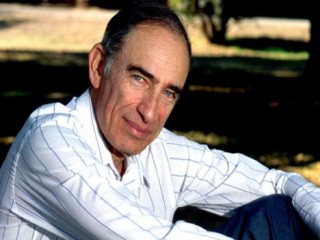
Paul R. Ehrlich biography
Date of birth : 1932-05-29
Date of death : -
Birthplace : Philadelphia, Pennsylvania,U.S.
Nationality : American
Category : Science and Technology
Last modified : 2011-12-21
Credited as : Biologist, Author, The Population Bomb
1 votes so far
By training he is an entomologist specializing in Lepidoptera (butterflies), but he also a prominent ecologist and demographer. Ehrlich is best known for his warnings about population growth and limited resources. Ehrlich became well-known after publication of his controversial 1968 book The Population Bomb. He is also known for the famous Simon–Ehrlich wager, a bet about the trend of prices for certain metals that he made in 1980 with, and lost to, economist Julian Simon.
The Population Bomb began with this statement: The battle to feed all of humanity is over. In the 1970s hundreds of millions of people will starve to death in spite of any crash programs embarked upon now. At this late date nothing can prevent a substantial increase in the world death rate ... Ehrlich argued that the human population was too high already, and that while the level of disaster could be mitigated, humanity could not prevent severe famines, the spread of disease, social unrest, and other negative consequences of overpopulation. However, he argued that societies must take strong action to curb population growth in order to mitigate future disasters both ecological and social.
Ehrlich was one of the founders of the group Zero Population Growth during 1968, along with Richard Bowers and Charles Remington. He and his wife Anne were on the board of advisors of the Federation for American Immigration Reform until 2003. He is currently a patron of Population Matters, (formerly known as the Optimum Population Trust).
With Stephen Schneider and two other authors, writing in the January 2002 issue of Scientific American, he critiqued Bjørn Lomborg's The Skeptical Environmentalist.
Awards and honors:
-The John Muir Award of the Sierra Club
-The Gold Medal Award of the World Wildlife Fund International
-A MacArthur Prize Fellowship
-The Crafoord Prize, awarded by the Royal Swedish Academy of Sciences and considered the highest award given in the field of ecology
-ECI Prize winner in terrestrial ecology, 1993
-A World Ecology Award from the International Center for Tropical Ecology, University of Missouri, 1993
-The Volvo Environmental Prize, 1993
-The United Nations Sasakawa Environment Prize, 1994
-The 1st Annual Heinz Award in the Environment (with Anne Ehrlich), 1995
-The Albert Einstein Club Commemorative Plaque, 1997
-The Tyler Prize for Environmental Achievement, 1998
-The Dr A.H. Heineken Prize for Environmental Sciences, 1998
-The Blue Planet Prize, 1999
-The Eminent Ecologist Award of the Ecological Society of America, 2001
-The Distinguished Scientist Award of the American Institute of Biological Sciences, 2001
-Ramon Margalef Prize in Ecology and Environmental Sciences of the Generalitat of Catalonia, 2009.
Author of books:
-How to Know the Butterflies (1960, nonfiction)
-Process of Evolution (1963, nonfiction)
-The Population Bomb (1968, nonfiction)
















